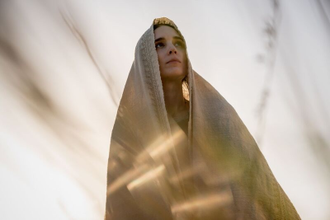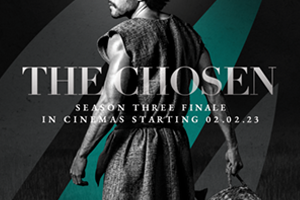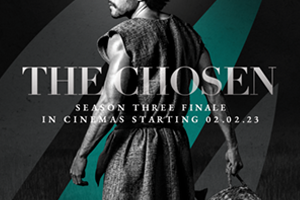Film: Mary Magdalene

Mary Magdalene has fascinated writers and artists over the centuries and been the cause of much speculation. Eastern Christian tradition always honoured her as the specially commissioned witness to Christ's Resurrection. Western Christendom muddled her identity with the woman taken in adultery, the repentant woman who washed Jesus' feet and Mary of Bethany, Lazarus' sister. Western art particularly portrayed her as the repentant sinner - confusing her with the early hermit Mary of Egypt, a reformed prostitute who subsequently lived an eremitical life in the desert.
At the same time early Christian writers recognized her as apostola apostolorum - the Apostle of the Apostles not, as alluded to in the film's credits, in 2016.
The Dominican Order of Preachers, took her as their patroness because she preached the Good News of the Resurrection. Blessed Humbert of Romans, second Master of the Order after St Dominic wrote: "after the Blessed Virgin no woman could be found to whom greater reverence should be shown in this world and greater glory in heaven."
Director Garth Davis' new film purporting to tell her real story bears little resemblance to New Testament accounts, drawing heavily on Gnosticism. Gnosticism has permeated history until the present day, frequently denying the divinity of Jesus and the physical resurrection. Whilst seeming to afford equality to women and men, their texts suggest that women have to transcend their femininity and become male.
Joacquin Phoenix (a fine actor but miscast here) at 44, is too old to play Jesus. He lacks charisma and struggles with the rambling script. Rooney Mara brings a luminous quality but never has a chance to develop Mary Magdalene's character beyond quoting chunks of Gnostic texts. She lives in a hovel with all her fisherfolk family and helps trawl in the nets - whereas she was a woman of means who supported Jesus and his followers out of her own money along with other women.
Israeli Irit Sheleg, in a too brief cameo, is insightful and anguished as Jesus' Mother.
There is no Last Supper or indication of Jesus' redemptive salvific act. Following his arrest he appears on an unmarked Cross with no last words spoken and only Mary Magdalene is seen standing there. She seems to have taken on the role of the beloved disciple, sharing secret conversations with Jesus and privy to a knowledge of the 'light' which escapes the other male disciples, most of whom are silent and characterless. Only Peter and Judas' characters are developed.
Judas, is sympathetically and believably portrayed by Tahar Rahim. Mistakenly he thinks Jesus will lead a rebellion against Roman rule and seeks to push him into action to bring about the Kingdom. Realising his failure to understand Jesus he hangs himself from a window, not a tree AFTER the crucifixion.
Tension between Mary and Peter culminates after the post-resurrection appearance to Mary with a discourse lifted from the Gnostic Gospels of Mary and Thomas.
Misleading credits only acknowledge inspiration from the Christian Gospels whereas in a Q& A session screenwriter Philippa Goslett admitted using the Gnostic Gospel of Mary.
Surprisingly the Mother's Union in conjunction with Damaris Media has produced a resource booklet to accompany this confused film.
See: http://filmblog.damaris.org/marymagdalene/
The recurring opening fantasy sequence depicts its heroine sinking beneath the waves - a likely metaphor for the film's fate.


















